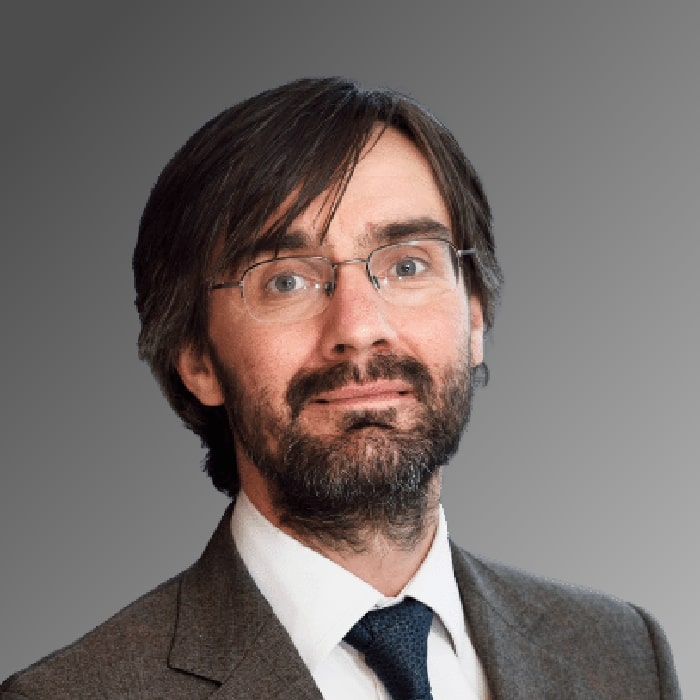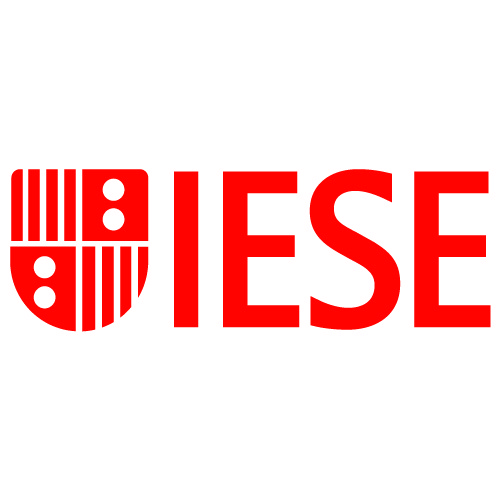Failure, Hobgoblins, and M&A: Dr. Dennis Charlebois on the Start-up Journey
Interviewed by Nicolas Sauvage on October 18th, 2024
In a recent episode of Corporate Venturing Insider (#90), Nicolas Sauvage, President of TDK Ventures, engaged in a thought-provoking conversation with Dr. Dennis Charlebois, a seasoned entrepreneur and professor of entrepreneurship at Santa Clara University. Charlebois, whose career spans engineering, corporate development, investment banking, startups, and academia, shared a wealth of insights on leadership, acquisitions, failure, and entrepreneurship in his interview.
Dr. Dennis Charlebois's diverse career path is a testament to the dynamic landscape of modern entrepreneurship. Once entrenched in the technical world, Charlebois embraced the exhilarating challenges of startups, ultimately becoming a recognized professor. His unique blend of experiences offers invaluable insights for aspiring entrepreneurs, investors, and corporate leaders looking to navigate the complexities of the modern business landscape.
Charlebois’s Entrepreneurial Journey
Charlebois began his career as an engineer, but his passion for innovation soon led him into the realm of startups. He launched eight startups in eight years, a whirlwind experience that taught him a crucial lesson: “Failing in startups is one of the most important assets you will ever have.” Each failure was a stepping stone, providing him with valuable insights into what it takes to succeed in a rapidly evolving marketplace.
Throughout his entrepreneurial journey, he learned the importance of pivoting—adapting to new information and circumstances quickly. “The only way to succeed is to be agile,” he explains. “You have to move fast, fail fast, and iterate.” This mindset helped him understand that building a strong team is paramount; in the fast-paced world of startups, the right people can make all the difference.
Charlebois’s early experiences laid the foundation for his later roles as an investor and professor. His failures shaped his perspective, informing his advice to aspiring entrepreneurs. “The lessons learned from failure are invaluable,” he asserts. By embracing failure as part of the entrepreneurial journey, he encourages others to do the same, instilling a resilient mindset in his students.
Navigating M&A: From Both Sides of the Table
Charlebois’s insights extend into the realm of mergers and acquisitions (M&A), where he has firsthand experience. In 2007, his company was acquired by Cisco, an event that provided him with a unique perspective on the M&A process. He recalls how Cisco implemented an effective onboarding process, which played a crucial role in the transition. Key strategies included insulating the acquired team from disruptions, assigning a dedicated ombudsman to address concerns, and structuring earnouts for onboarded team members strategically.
These strategies fostered smooth integration, illustrating the importance of a thoughtful approach to M&A. However, Charlebois cautions that not all acquisitions are managed so effectively. He highlights several common pitfalls organizations often encounter during M&A, including the dangers of “making decisions based on personal relationships rather than strategic frameworks.” This often leads to overvaluing acquisitions to make them appear accretive, ultimately hindering the long-term success of the acquiring company.
He warns against falling prey to sunk cost fallacies, emphasizing that businesses must be willing to cut their losses when necessary. “Sometimes you have to let go to move forward,” he advises. These insights reveal the complex nature of M&A and the importance of strategic alignment in ensuring successful outcomes.
Choosing the Right Investors
When it comes to selecting investors, Charlebois provides a thought-provoking analogy: “Choosing a VC is like choosing a mate.” This comparison underscores the significance of compatibility, shared vision, and access to resources beyond mere funding. He stresses that aligning values and goals is essential for a fruitful partnership.
Charlebois believes that corporate venture capitalists (CVCs) can be ideal partners for startups, provided that entrepreneurs carefully assess alignment with the corporate investor’s vision and objectives. He explains that CVCs offer strategic alignment and a longer investment horizon. However, Charlebois emphasizes that it’s also critical for entrepreneurs to ensure that the CVC’s goals align with their own.
By selecting investors who share their vision and values, startups can create a powerful synergy that propels them toward success. Charlebois’s insights emphasize the importance of building relationships based on mutual understanding and strategic alignment, laying a strong foundation for future growth.
Building a Successful Corporate VC
In his quest to establish a high-performing corporate VC, Charlebois outlines a blueprint based on his extensive experience. He emphasizes several key principles essential for success:
- A Clear Strategic Charter: Corporate VCs must align their objectives with the corporation’s overarching goals. A well-defined charter provides direction and clarity, guiding investment decisions.
- Operational Independence: To thrive, corporate VCs need to operate independently from corporate bureaucracy. This autonomy enables them to make agile decisions and adapt quickly to market changes.
- Lean and Agile Structure: Charlebois advocates for a structure that mirrors the startup environment, promoting innovation and responsiveness. “You want to be nimble and quick,” he notes.
A central theme throughout Charlebois’s recommendations is the emphasis on customer-centricity. By prioritizing customer value, corporate VCs can guide their investment and acquisition decisions toward long-term success. “If you’re not focused on the customer, you’re missing the point,” he emphasizes. This focus ensures that investments are not just financially sound but also align with the needs and desires of the market.
Looking Ahead
Dr. Dennis Charlebois’s insights on embracing failure, navigating M&A, choosing the right investors, and building successful corporate VCs provide a valuable roadmap for aspiring entrepreneurs, investors, and corporate leaders alike. His unique blend of experiences—as an engineer, entrepreneur, investor, and educator—offers a wealth of knowledge that can guide anyone involved in building, growing, and acquiring businesses in today’s dynamic market.
As the complexities of the business world continue to evolve, Charlebois leverages his experiences to empower his students, helping them apply these lessons in real-world scenarios. His teachings underscore the enduring relevance of strategic alignment, agility, and a customer-centric approach in navigating future challenges. In a landscape filled with uncertainty, his wisdom stands as a beacon for those ready to embrace the journey of entrepreneurship and investment, fostering a new generation of leaders prepared to thrive in the ever-changing business environment.

 Acquisitions should have a clear strategic framework that outlines their goals. Without a framework, companies risk picking the wrong target and going through with an acquisition due to sunk cost.
Acquisitions should have a clear strategic framework that outlines their goals. Without a framework, companies risk picking the wrong target and going through with an acquisition due to sunk cost. 


















